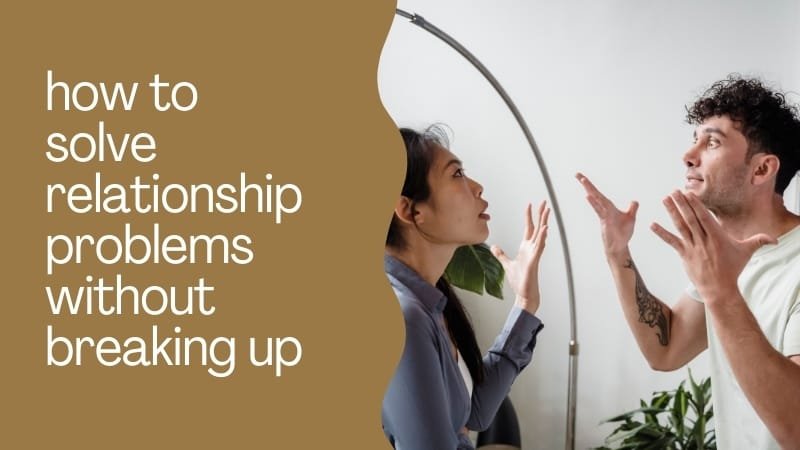Solving relationship problems without breaking up is possible — and often healthier — when both partners are willing to understand each other, communicate effectively, and commit to working through challenges together.
Here’s a deeper look at how to navigate relationship difficulties constructively:
1. Start with Open and Honest Communication
Misunderstandings and assumptions can quickly escalate into major conflicts. To prevent this:
- Schedule calm, distraction-free conversations.
- Express your feelings clearly using “I feel…” instead of “You always…”
- Avoid criticizing or blaming; focus on how the issue affects you and what you need.
Example:
Instead of saying, “You never listen to me,” try: “I feel unheard when I’m speaking and I really need your attention.”
2. Practice Active Listening
Many problems stem from not feeling truly heard. Active listening means:
- Making eye contact
- Not interrupting
- Reflecting back what your partner said: “So you’re saying you feel overwhelmed when I cancel plans last minute?”
This builds empathy and lowers defensiveness.
3. Identify the Root Cause — Not Just the Symptoms
Frequent arguments often cover deeper issues such as:
- Emotional neglect
- Mismatched expectations
- Past trauma or unresolved resentment
Take time to explore what’s really bothering each of you. Surface problems (like chores or time management) often stem from deeper unmet needs like feeling valued or respected.
4. Set Clear Boundaries and Shared Goals
Healthy boundaries prevent misunderstandings. Discuss and agree on things like:
- Personal space and alone time
- How you handle conflict
- What support looks like for each of you
Also, align on long-term goals. Ask: “What do we want from this relationship, and how can we support each other to get there?”
5. Be Willing to Compromise
Relationships require flexibility. You won’t always get your way, and neither will your partner. The key is mutual effort and compromise:
- Pick your battles
- Let go of the need to “win” arguments
- Focus on solutions, not fault-finding
6. Consider Couples Therapy
A licensed couples therapist offers tools and guidance that can help break unproductive cycles. Therapy provides a neutral space where both partners feel safe expressing themselves.
Common therapy approaches include:
- Emotionally Focused Therapy (EFT)
- Gottman Method Couples Therapy
- Cognitive Behavioral Therapy for couples
Seeking help is not a sign of failure — it’s a step toward healing and growth.
7. Rebuild Connection and Intimacy
Conflict can erode closeness. Reconnect by:
- Spending quality time together
- Practicing small acts of kindness
- Expressing appreciation regularly
Positive interactions (compliments, hugs, laughs) help buffer against future conflicts.
Final Thoughts
Most relationship problems are not about incompatibility — they’re about unresolved emotions, unmet needs, or poor communication habits. With mutual commitment, empathy, and sometimes professional guidance, many couples can rebuild stronger, healthier relationships without breaking up.


